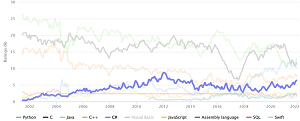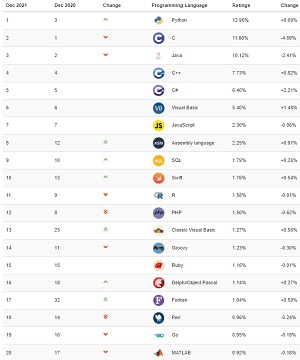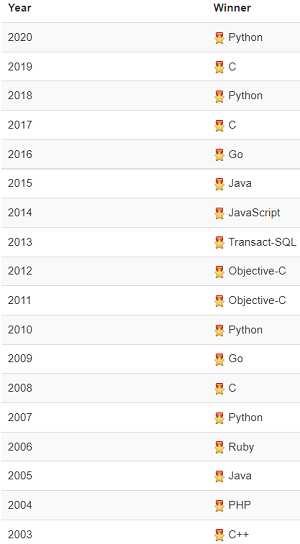News
C# Chasing 2021 TIOBE Index 'Programming Language of the Year' Award
TIOBE Index, one of the more prominent trackers of programming language popularity, says C# is in the running for being named language of the year next month.
That award goes not to the most popular language (Python has claimed that crown), but rather the one that shows the biggest increase in its rating over the year.
For C#, that's 2.21 percent in the December report, placing it well ahead of the pack.
"At the moment, C# is by far the most likely candidate for this title," said Paul Jansen, CEO TIOBE Software. "It is interesting to note that C# has never won the 'TIOBE index programming language of the year award' during its 21 years of existence, although it has been in the top 10 for the last 2 decades. Let's see what happens next month!"
Indeed, for the last four years, Python and C have alternatively shared that honor.
After peaking in 2012, C# nosedived for a few years before recovering the last couple, as this track of C# over the years shows (C# is the bolder, purple line):
 [Click on image for larger view.] C# Popularity Over Time (source: TIOBE Index).
[Click on image for larger view.] C# Popularity Over Time (source: TIOBE Index).
That recovery has brought it to No. 5 on the popularity list, as this graphic shows:
 [Click on image for larger view.] The December 2021 Index(source: TIOBE Index).
[Click on image for larger view.] The December 2021 Index(source: TIOBE Index).
And here's the list of language of the year winners:
 [Click on image for larger view.] Programming Language Hall of Fame (source: TIOBE Index).
[Click on image for larger view.] Programming Language Hall of Fame (source: TIOBE Index).
"Other interesting moves in the TIOBE index this month are Swift (from #14 to #10), R (from #15 to #11), and Kotlin (from #33 to #26)," Jansen said.
About the Author
David Ramel is an editor and writer at Converge 360.